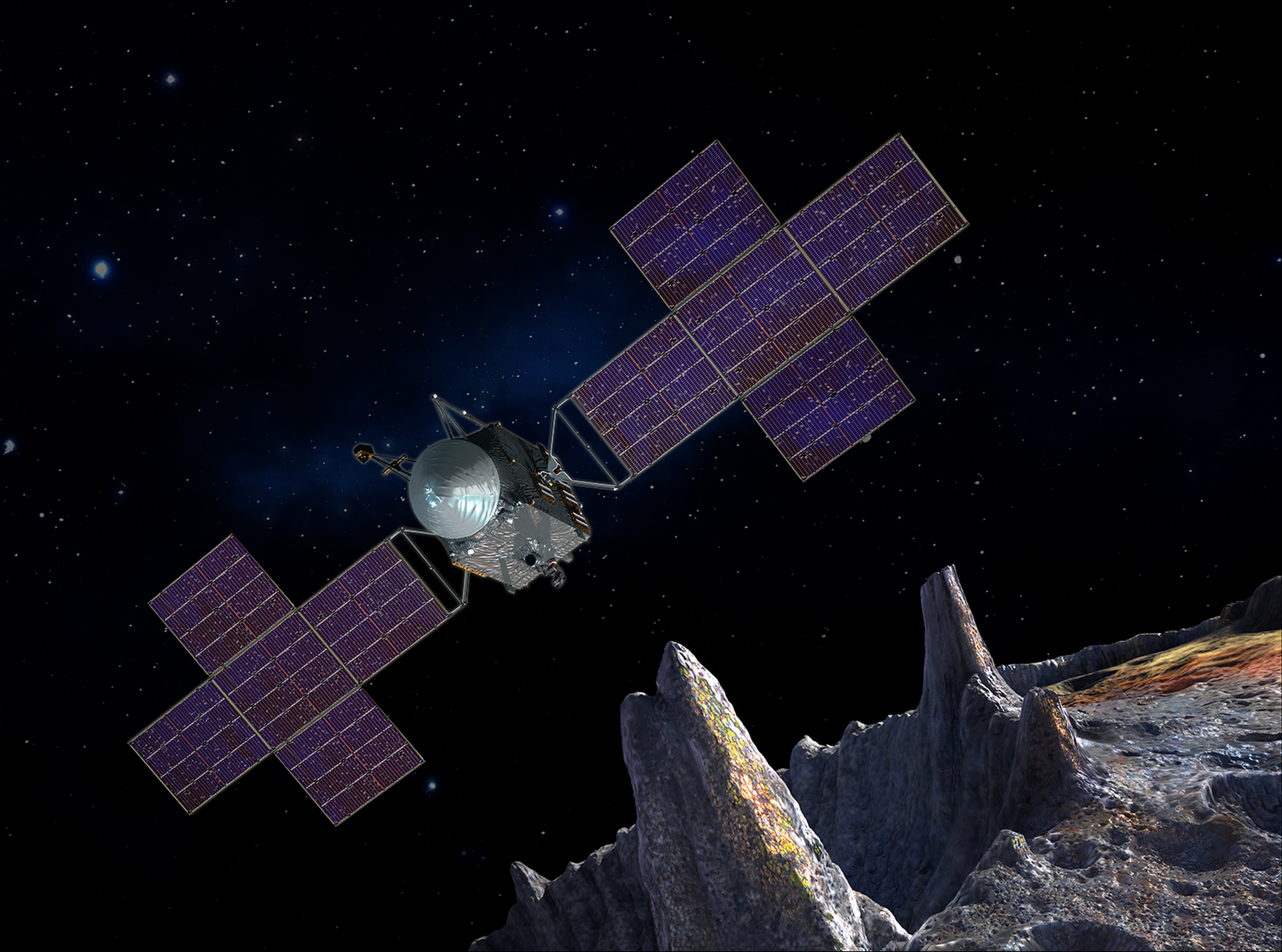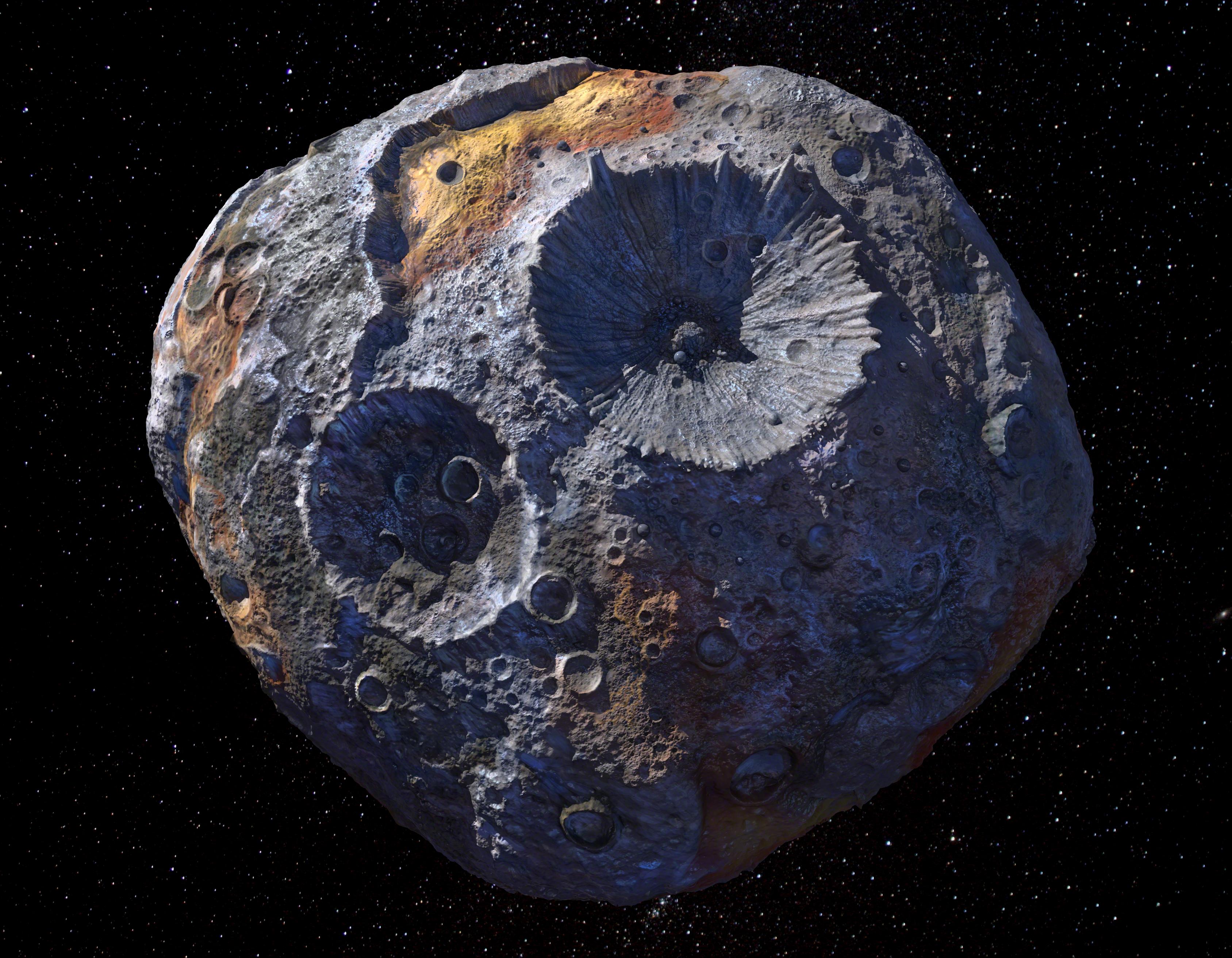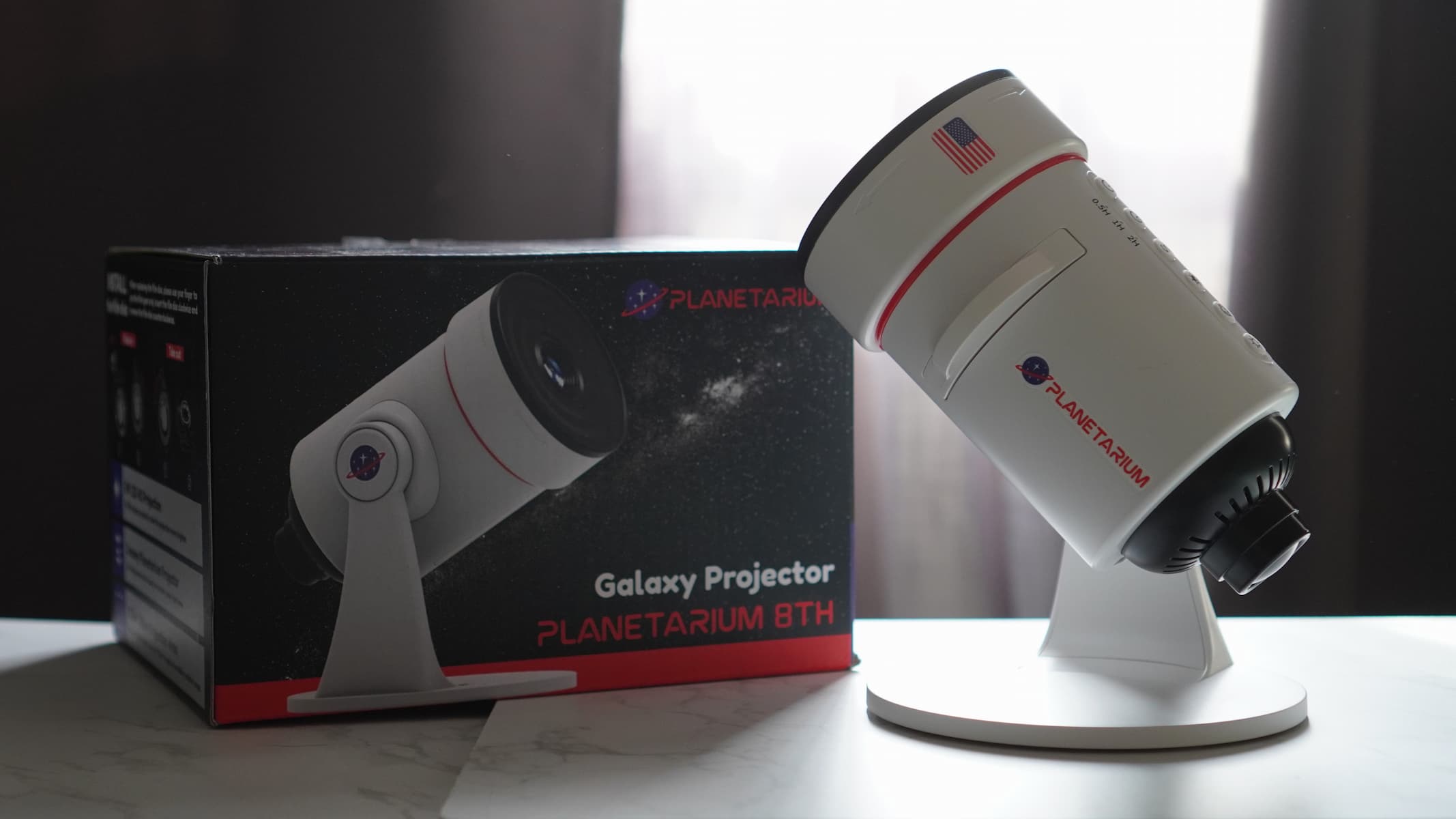Problems with NASA asteroid mission Psyche delay Venus probe's launch to 2031
The VERITAS Venus mission had been scheduled to lift off in late 2027.

A Venus mission will have to wait at least three more years to launch due to problems with another interplanetary NASA venture.
A tangled web of issues led to the delay of the Psyche spacecraft's mission to the main asteroid belt, which was originally set to launch between August and October of this year.
Psyche survived a continuation/termination review this year that could have led to its cancellation and is now expected to fly in October 2023. But costs and staffing issues associated with Psyche's delay have pushed the launch of another high-profile NASA mission back by at least three years, officials with NASA's Jet Propulsion Laboratory (JPL) in Southern California and the agency said.
Related: The greatest asteroid missions of all time!
VERITAS ("Venus Emissivity, Radio Science, InSAR, Topography and Spectroscopy") had been targeted for liftoff in late 2027, but it will now launch no earlier than 2031. VERITAS will use radar to map Venus' surface from orbit in great detail. (Another NASA Venus mission, DAVINCI+, is still on track for a 2029 launch.)
While glitches with developing the Psyche's flight software were named as the primary technical cause of the JPL-led mission's delay, an independent investigation released Friday (Nov. 4) found wider issues with management and staffing that contributed to the problem.
"The review board — convened at the request of NASA and JPL — found a significant factor in the delay was an imbalance between the workload and the available workforce at JPL," NASA officials said in a statement late Friday. "NASA will work closely with JPL management over the coming months to address the challenges raised in the report. The board will meet again in spring 2023 to assess progress."
Breaking space news, the latest updates on rocket launches, skywatching events and more!
Psyche, which will visit its metal asteroid namesake, will still need to find money to cover an expected development fund shortfall even after NASA delays the estimated $500 million VERITAS, NASA's Lori Glaze warned while speaking with reporters in a press conference Friday. The agency previously noted that the cap for the Psyche mission (including launch) was $985 million, and $717 million had already been spent by late June.
"There is an increased cost to the division budget in order to support the development of Psyche," said Glaze, NASA's planetary science director. Additionally, NASA determined that delaying VERITAS "would allow experienced staff at JPL to complete development of strategic flagship missions further along in their development," the agency statement said Friday.
Programmatic changes to Psyche are coming in the meantime. The investigation board identified a range of staffing issues, including (but not limited to) lack of communication due to hybrid work associated with COVID-19 isolation protocols; a rapid changeover in management (three times in four years); and employees being unable to easily bring forward issues to people higher up the mission's chain of command.
Shortfalls in staffing were associated with two Mars mission failures in the late 1990s: the Mars Climate Orbiter and the Mars Polar Lander, each of which failed to reach its destination safely due to technical problems. But this time around, it was less a staffing issue and more a lack of technical oversight, JPL Director Laurie Leshin said during Friday's briefing. The pandemic induced some of these issues, Leshin added.
Related: The best (and worst) Mars landings of all time
Psyche managers, she said, "were spending a lot more time trying to figure out staffing challenges, and that can lead to some issues in them being able to do the technical oversight that we expect of them as well. So that, to me, is a really important thread to pull on here. It's not that we need more [people]. It's that we need to make sure that people understand their roles and responsibilities and are doing that effectively."
Leshin emphasized that the Psyche team would need to look at their processes to "make sure that we are doing the highest-value things," including finding the right metrics and focusing on innovation. The lessons learned from this process, she said, will help with managing other forthcoming NASA missions like Europa Clipper, poised to launch to an icy moon of Jupiter in 2024.

Review chair Tom Young, who chaired the investigation of the two 1998 Mars failures as well, emphasized that the circumstances were different in terms of staffing between then and now. He described those two failed Mars missions as being "highly constrained" with their cost and schedule, which increased the risk. With Psyche, he noted, employees did come forward to say the mission wasn't ready: "It takes some courage to say that you're not ready to launch."
"We really didn't recommend more middle management or managers," Young added. "We really said that we had to have managers who had the necessary experience to execute a program with the complexity and challenges of Psyche."
NASA and JPL concurred, or concurred in spirit, with all of the recommendations made by the board and have "already made a lot of moves" to improve processes for Psyche going forward, Leshin noted. New leadership is in place in areas like systems engineering, and new processes are in the works to increase collaboration. The group is also "redoubling our efforts to make sure we're bringing in the talent we need" amid an industry-wide worker shortage, she said, which includes measures like reviewing salary compensation and mentorship opportunities.
"We are working that challenge. We're facing into that challenge each and every day, and we're doing well. We are able to hire great folks, and we'll be continuing to do that," added Leshin. Positions are open today for anyone who wishes to apply, she added.
Elizabeth Howell is the co-author of "Why Am I Taller?" (ECW Press, 2022; with Canadian astronaut Dave Williams), a book about space medicine. Follow her on Twitter @howellspace. Follow us on Twitter @Spacedotcom or Facebook.
Join our Space Forums to keep talking space on the latest missions, night sky and more! And if you have a news tip, correction or comment, let us know at: community@space.com.

Elizabeth Howell (she/her), Ph.D., was a staff writer in the spaceflight channel between 2022 and 2024 specializing in Canadian space news. She was contributing writer for Space.com for 10 years from 2012 to 2024. Elizabeth's reporting includes multiple exclusives with the White House, leading world coverage about a lost-and-found space tomato on the International Space Station, witnessing five human spaceflight launches on two continents, flying parabolic, working inside a spacesuit, and participating in a simulated Mars mission. Her latest book, "Why Am I Taller?" (ECW Press, 2022) is co-written with astronaut Dave Williams.
